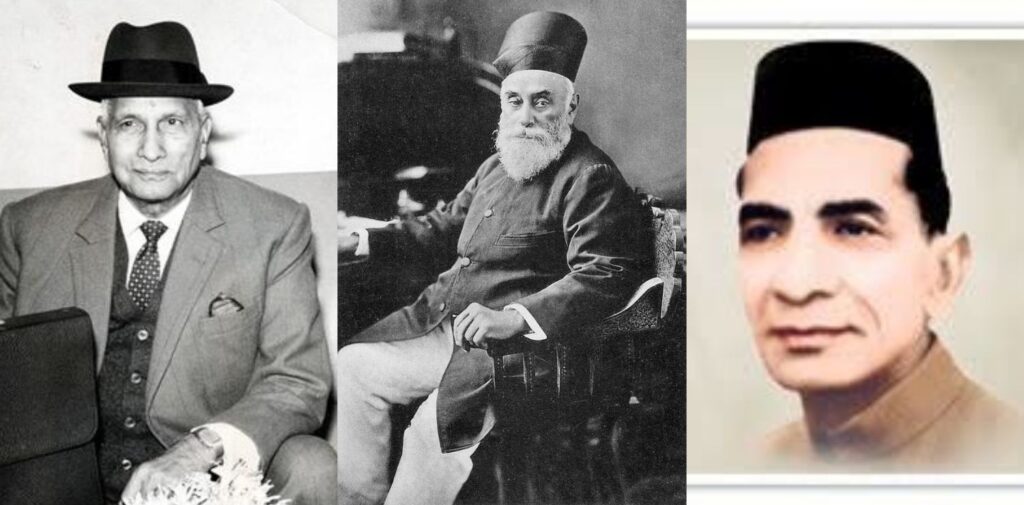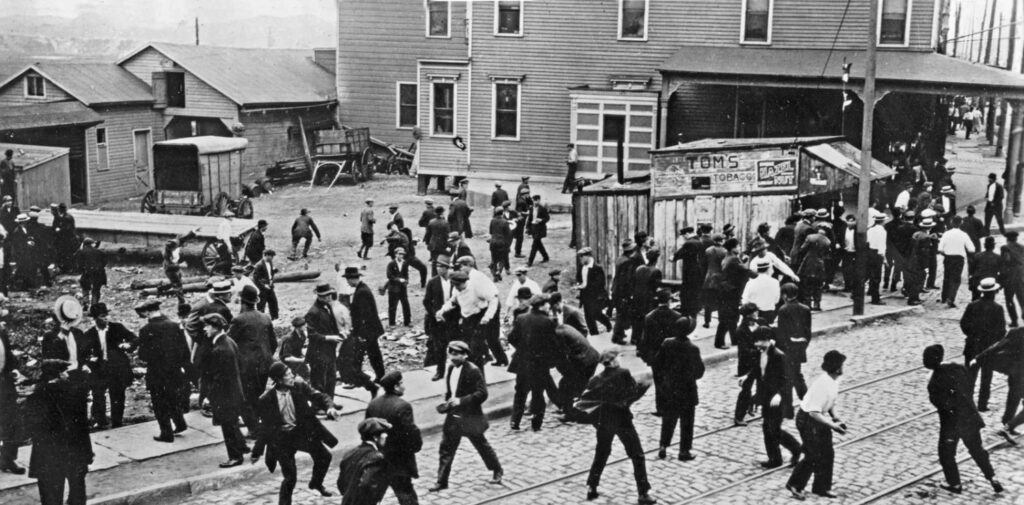The Indian Independence Movement, which led to the country’s freedom from British colonial rule in 1947, is often associated with leaders like Mahatma Gandhi, Jawaharlal Nehru, and Subhas Chandra Bose. While their political and social contributions are well-known, there were many other factors that contributed to India’s struggle for freedom. One of the key but often overlooked elements was the role of trade and industry. The economic policies imposed by the British not only drained India of its resources but also affected its industries and trade. This had a profound impact on the Indian freedom struggle. In this article, we will explore how trade and industry played a crucial role in India’s fight for independence.
The British Economic Exploitation of India
When the British established colonial rule over India in the mid-18th century, one of their main objectives was to exploit the country’s resources for their own benefit. This exploitation deeply affected India’s trade and industries. British policies favored the import of British goods while discouraging the growth of local industries. Indian industries were undermined, and the local economy was reduced to a supplier of raw materials for Britain’s industries.
The British imposed high taxes on Indian industries and even placed restrictions on the production of certain goods. For example, the British monopoly over the textile industry in India destroyed the thriving cotton and handloom industries. Indian artisans and manufacturers were forced to sell raw materials like cotton to British factories at very low prices, while finished products like clothes were imported from Britain at much higher prices. This created a situation where India became a supplier of raw materials and a market for British finished goods.
This economic exploitation fueled resentment among Indians, especially the industrialists, merchants, and workers who were directly impacted by these policies. Over time, this dissatisfaction gave rise to movements that sought to break free from British control.

The Rise of Indian Nationalism in Trade and Industry
The industrial and trade sectors began to play an important role in the Indian independence movement when nationalistic sentiments grew stronger. Indian business leaders and industrialists, who were deeply affected by the British policies, started to recognize that political freedom was essential for the survival of their businesses and industries. These leaders began to support the idea of self-rule, or Swaraj, because they believed that only through independence could India revive its industries and improve trade conditions.
One of the first major steps in this direction was the formation of the Indian National Congress (INC) in 1885, which was initially set up to represent the interests of the Indian elites, including traders and industrialists. Over time, the INC became a major political force pushing for independence, and many prominent businessmen and industrialists became members of the party.
Indian Industrialists in the Independence Movement
A key element of the economic struggle for independence was the growth of Indian industrialists who challenged British economic policies. They recognized that if India was to become economically self-sufficient, it needed a strong industrial base. Therefore, they started building their own factories, producing goods, and promoting the idea of Swadeshi (the use of Indian-made products).
1. The Swadeshi Movement (1905-1908)
The Swadeshi Movement was one of the most significant movements in the Indian independence struggle, and it had strong ties to trade and industry. The movement was a response to the British decision to partition Bengal in 1905, which was seen as a way to divide and rule the Indian population. The Swadeshi Movement called for boycotting British goods and promoting Indian-made goods. Industrialists played a crucial role in this movement by setting up Indian-owned factories that produced textiles, salt, and other goods to replace British imports.
Indian leaders like Bipin Chandra Pal, Lala Lajpat Rai, and Bal Gangadhar Tilak encouraged the Indian people to use products made by Indian industries rather than imported British goods. This not only helped create jobs but also fostered a sense of national pride and self-reliance. Indian manufacturers began to understand the importance of self-sufficiency and started to invest in industries that could help India grow economically.

2. Prominent Indian Industrialists and Their Contribution
Several Indian industrialists supported the nationalist movement and played a key role in promoting Indian industry. Some of the notable industrialists were:
- G.D. Birla: A prominent industrialist, G.D. Birla was an active supporter of the Indian National Congress and the independence movement. He helped fund the Swadeshi Movement and played a key role in building several industries in India. Birla also worked to promote education and set up institutions that would contribute to India’s economic development after independence.
- Jamsetji Tata: Known as the father of Indian industry, Jamsetji Tata was an early advocate for industrial growth in India. He founded the Tata Group and was instrumental in setting up industries such as steel, textiles, and power plants in India. Jamsetji Tata’s vision for an industrialized India became a model for many other industrialists.
- Lala Shriram: Another influential industrialist, Lala Shriram supported the Indian National Congress and helped promote Swadeshi goods. He invested in several industries and provided financial support for the freedom struggle.
Workers’ Movements and Trade Unions
While Indian industrialists played a key role in the economic aspects of the independence movement, workers and trade unions also became important players. The conditions of workers under British rule were harsh. Factory workers, miners, and agricultural laborers were often exploited and paid low wages. Many of these workers, particularly in the textile and coal industries, became involved in the struggle for better working conditions and wages.
The Role of Trade Unions
In the early 20th century, trade unions began to form in major industrial cities like Bombay (now Mumbai) and Ahmedabad. These trade unions, which were initially focused on improving working conditions, soon became part of the larger nationalist struggle. Leaders like N.M. Joshi and Subhas Chandra Bose supported the workers’ cause and connected it to the broader goals of independence. These trade unions organized strikes and protests, demanding better wages, better conditions, and independence from British rule. The success of these strikes helped raise awareness about the exploitation of workers under British rule and added momentum to the independence movement.

The Impact of Trade and Industry on the Economic Independence of India
The movement for economic self-reliance was a crucial part of the larger struggle for independence. Indian industries and trade were not only a means of challenging British economic policies but also a way of showing that India could thrive economically without the British. The focus on Swadeshi (self-reliance) helped India take its first steps toward industrial development, which would prove essential after independence.
After India gained independence in 1947, many of the industrialists who had supported the freedom movement continued to play important roles in shaping India’s post-independence economic policies. The Indian government focused on building industries, creating jobs, and reducing the country’s dependency on foreign countries for goods. This was the beginning of a new chapter where Indian trade and industry became integral to the nation’s growth.
Conclusion
The role of trade and industry in the Indian Independence Movement was crucial to the overall struggle for freedom. The economic exploitation by the British deeply affected Indian industries and trade, creating resentment among the people. Industrialists, workers, and merchants played a key role in challenging British economic policies, supporting the Swadeshi Movement, and pushing for a self-reliant India. Their efforts not only contributed to the independence movement but also laid the foundation for India’s economic growth in the years that followed. The role of trade and industry in India’s fight for independence shows that economic freedom was as important as political freedom, and both went hand in hand in the quest for a sovereign nation.




